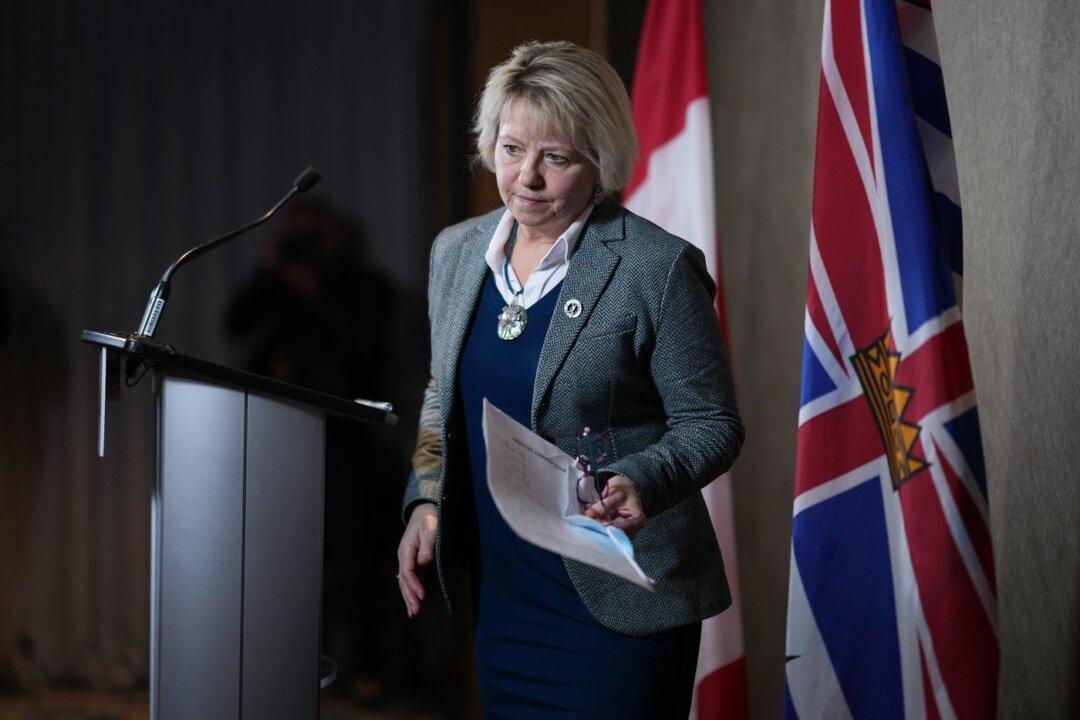The Supreme Court of British Columbia has resumed hearings for a class-action lawsuit brought by a non-profit organization against Provincial Health Officer Dr. Bonnie Henry and the COVID-19 mandates introduced by the government.
The certification hearings aim to determine whether to approve the lawsuit, proposed by the Canadian Society for the Advancement of Science in Public Policy (CSASPP) on Jan. 26, 2021.





